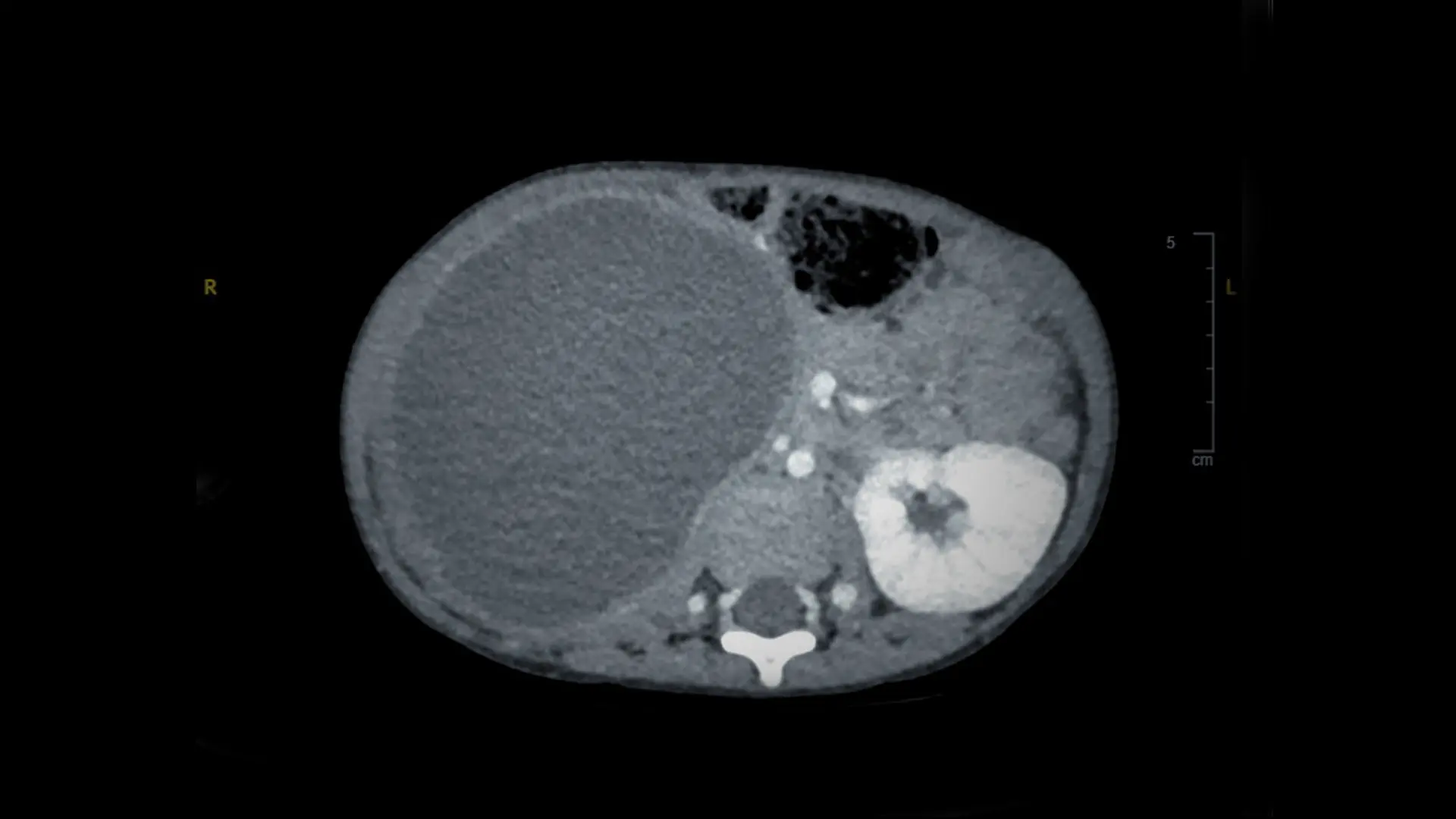Three-year-old Fnan Okubay was living with his parents and six siblings in Eritrea, a northeast African country, when he experienced abdominal swelling and shortness of breath. Doctors recommended he go to Ethiopia for an initial workup, where he was diagnosed with tuberculosis and Wilms tumor, a kidney cancer predominantly affecting children. Initial computerized tomography (CT) scans showed a large mass arising from his right kidney as well as several small masses in his lungs concerning for metastatic cancer. In Ethiopia he received anti-tuberculosis drugs, as well as chemotherapy for 12 weeks that consisted of vincristine, dactinomycin, and doxorubicin, with interval CT scan at the six-week mark demonstrating the lung masses disappearing.
After extensive discussions regarding Fnan’s health and the need for more specialized care, including a highly complex surgery for the removal of a kidney mass along with radiation therapy and additional chemotherapy, doctors recommended that he pursue treatment in the United States. Relatives of Fnan’s father who live in the United States recommended that he seek care in New York City. In July 2023, Fnan’s father was able to bring him to New York City and take him directly to Mount Sinai Kravis Children’s Hospital for further treatment.
At Mount Sinai, Fnan underwent a CT scan of his abdomen, which confirmed an 11cm tumor of right renal origin. After a multidisciplinary discussion with Kayleen Bailey, MD, Assistant Professor of Pediatrics (Hematology-Oncology) at the Icahn School of Medicine at Mount Sinai; Brian Coakley, MD, Associate Professor of Surgery, and Pediatrics, at Icahn Mount Sinai; and Stanislav Lazarev, MD, Assistant Professor of Radiation Oncology at Icahn Mount Sinai, the team decided to proceed with a right radical nephrectomy, a surgical procedure involving the removal of the entire kidney along with surrounding tissues and nearby lymph nodes. This would be followed by six sessions of right flank irradiation while awaiting genetic testing on the tumor to decide the next chemotherapy treatment course and whether he needed lung irradiation.
During the nephrectomy, Dr. Coakley encountered dense scar tissue caused by the chemotherapy administered before Fnan came to the United States. In typical Wilms tumor cases, the team at Mount Sinai will perform surgery first and then administer chemotherapy in order to avoid possible complications from scar tissue. Despite the scar tissue, the kidney was successfully removed.
Fnan tolerated the subsequent flank radiation therapy remarkably well without developing any acute untoward effects of treatment. During his surgical resection, he had a mediport placed for additional chemotherapy and had a gastrostomy tube placed as he was severely underweight. His Wilms tumor pathology had favorable histology with the tumor extending to the margin of the renal vein, along with certain genetic alterations (LOH at 16q but not 1p). Therefore, after another multidisciplinary discussion, he continued his original chemotherapy regimen without the need for escalation to a more intense regimen and did not receive lung radiation.
For the first time since the diagnosis, Fnan has been gaining weight well on his gastrostomy tube feed, and is currently being weaned from it. He continues on rifampin and isoniazid antibiotics for his original tuberculosis diagnosis. He has recently completed the remainder of his chemotherapy and his end-of-treatment scans show that he does not have any residual Wilms tumor.
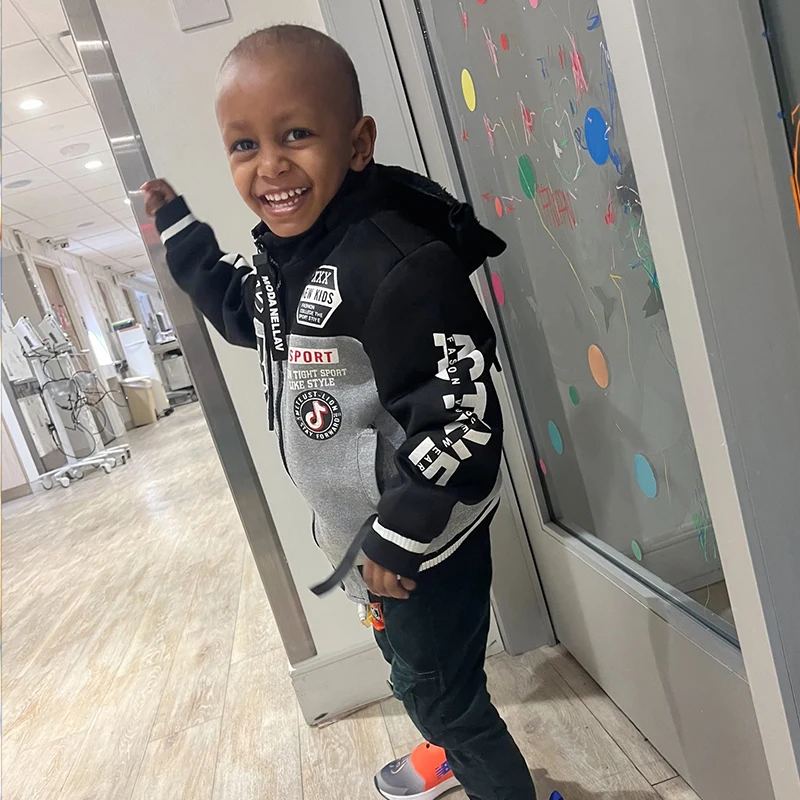
TK
Featured
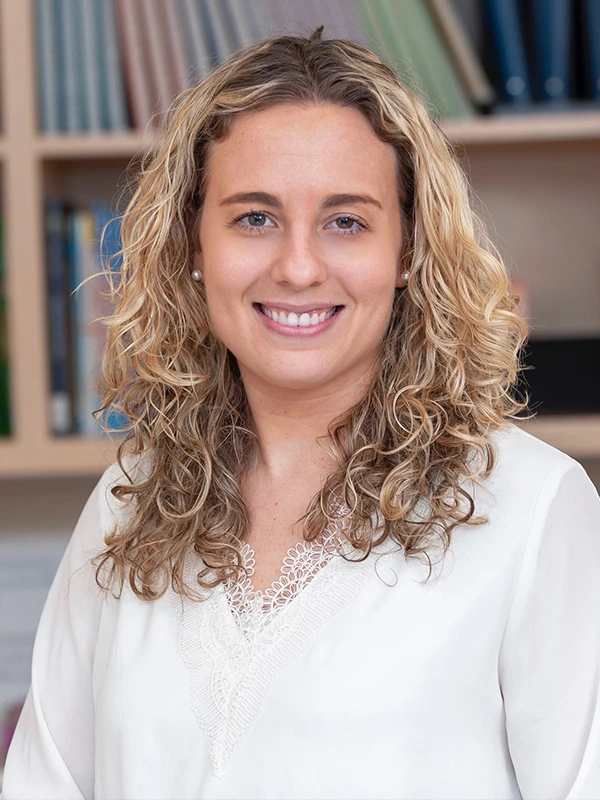
Kayleen Bailey, MD
Assistant Professor of Pediatrics (Hematology-Oncology)
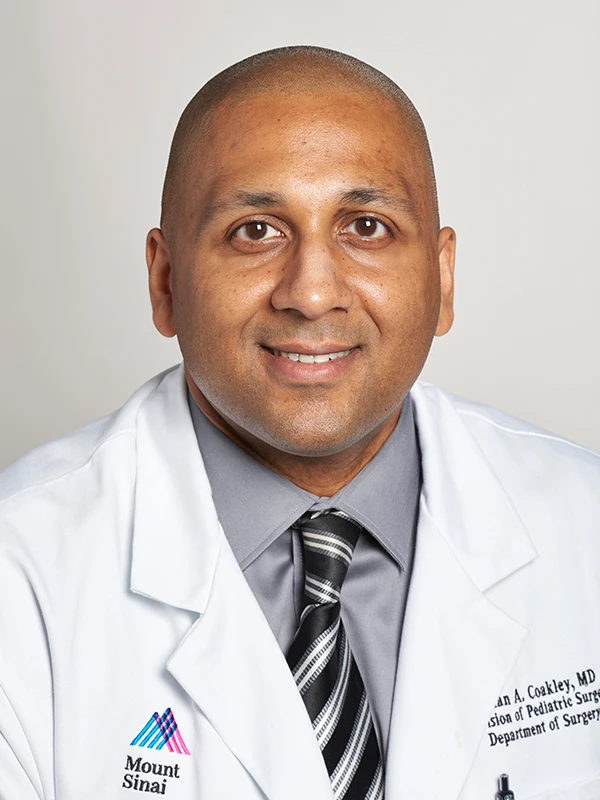
Brian Coakley, MD
Associate Professor of Surgery, and Pediatrics, at Icahn Mount Sina
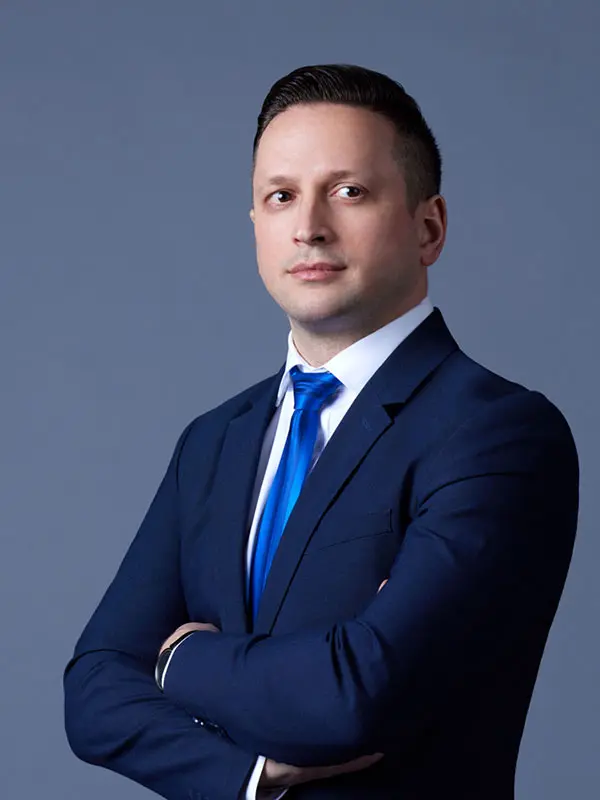
Stanislav Lazarev, MD
Assistant Professor of Radiation Oncology
